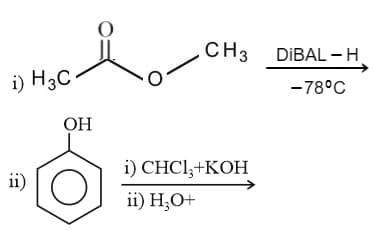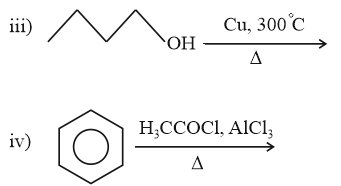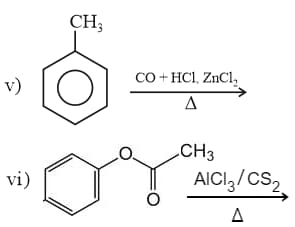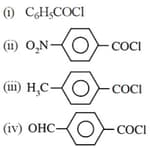Introduction to Aldehydes, Ketones and Carboxylic Acids
Introduction to Aldehydes, Ketones and Carboxylic Acids: Overview
This topic covers concepts, such as, Aldehydes and Ketones & Carbonyl Groups etc.
Important Questions on Introduction to Aldehydes, Ketones and Carboxylic Acids
How many aliphatic carbonyl compounds are possible having the molecular formula ?
Identify a ketone molecule, among the given compounds.
A carbonyl compound muscone finds application in
Identify a compound not having the carbonyl group.
Aldehydes can be represented by the general formula
Which isomerism is shown by pentanone?
Which of the following functional groups is generally least reactive towards nucleophilic substitution reactions?
Consider the following compounds
The correct decreasing order of their reactivity towards hydrolysis is
In how many of the following reactions, aldehyde is formed as a product?




Which of the following statements is true about propanone with respect to bonds,bonds and lone pairs of electrons, respectively?
Aldehyde which is formed during photosynthesis of plants is

